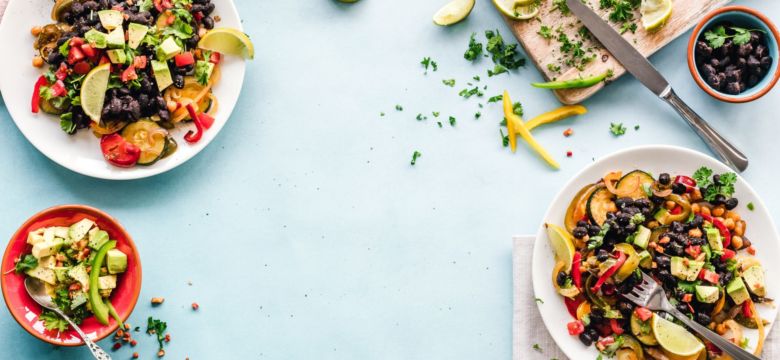
SIBO and a Grain-Free Diet
SIBO, or Small Intestinal Bacterial Overgrowth, is a serious health condition that affects the small intestine. Typically, it occurs when certain bacteria (that is completely normal in other areas of our gut) begin to leak and grow into the small intestine. And like many intestinal tract-related issues, SIBO has many symptoms:
- Stomach pain after meals
- Bloating and cramps
- Diarrhea or constipation
- Indigestion and gassiness
- Feeling constantly full
- Malnutrition and weight loss
Typically, these unpleasant symptoms will occur after consuming foods that are high in sugars or high in fiber. Think sodas, desserts, pinto beans, and certain bran-based cereals and breads. So many who suffer from SIBO (and the associated leaky gut syndrome) choose to try out one or several diets to reduce these symptoms.
The Common SIBO Diets
Different people experience different symptoms, and many SIBO dieters must go through a trial and error of sorts to figure out which diet is best for their body and what makes their small intestine happy. Some of those SIBO diets are:
- Low FODMAP Diet — Removes carbohydrates high in fermentable oligosaccharides, disaccharides, monosaccharides, and polyols. Also works on IBS.
- SCD Diet — Removes specific carbohydrates (polysaccharides, some oligosaccharides, disaccharides, and polyols).
- SIBO Specific Diet — A combination of the low FODMAP diet and the SCD diet. Quite strict, but relieves numerous symptoms.
- Gut and Psychology Syndrome (GAPS) Diet — Focused on connection between the gut and the brain.
Each diet helps different folks in various ways, Essentially, the diet gives your body a break from allergens and underlying irritants, which act as a source of nourishment for bacteria. When you pinpoint the ideal one for you, it can properly heal your intestinal tract and cure your SIBO!
Curing SIBO Symptoms Through a Grain-Free Diet
All of these specific SIBO diets essentially begin with a “kill phase” that removes the bacteria’s source of nourishment (sugar!) as much as possible. The low FODMAP diet, for instance, focuses on removing fermentable short-chain sugars, while the SCD diet eliminates the same short-chain sugars, but also… grains.
The list of foods to avoid can seem long and restrictive, but it comes down to focusing on foods with low sugar content. The most restrictive SCD diet focuses on removing sugar in grains as well, which are difficult for our bodies to digest.
The SCD diet begins strict, but loosens up as your gut heals, allowing you to reintroduce foods slowly. For starters, here are some of the foods you should eliminate on an SCD diet:
- Baked cakes and cookies
- Sweet soda, drinks, alcohol
- Breads, biscuits, bagels, and pastas
- Rice, wheat, corn, quinoa, millet, etc.
- Starchy Vegetables: sweet potatoes, potatoes, yams, butternut squash, corn, parsnips.
- Legumes: lentils, peas, chickpeas
- Beans: Kidney, navy, pinto, black, cannellini (although soaking helps!)
- Sweeteners like saccharin and Stevia (honey is ok!)
- Processed meats and meats with additives
- Dairy, butter, (some cheeses are ok!)
The SIBO Grain-free Diet and Supplement Combo
A grain-free diet can be a curative for SIBO, allowing your gut to heal from underlying allergens. However, a more effective treatment would be to combine it with an herbal or vitamin supplement to weaken the bad bacteria and restore gut immunity.
Combining a diet and herbal supplement is not just an effective method, it also prevents a relapse, which could damage your overall gut bacterial health, having an unintended and adverse effect that could create more havoc.
If you suspect you’re experiencing SIBO symptoms, reach out to Naturna so that we do more than “starve” and suppress the invading bacteria in your small intestine. We can help heal the intestinal lining with herbal therapies as a natural alternative to Rifaximin.
Resources:
Dukowicz AC, Lacy BE, Levine GM. Small intestinal bacterial overgrowth: a comprehensive review. Gastroenterol Hepatol (N Y). 2007;3(2):112–122.
Magge S, Lembo A. Low-FODMAP Diet for Treatment of Irritable Bowel Syndrome. Gastroenterol Hepatol (N Y). 2012;8(11):739–745.
Chedid V, Dhalla S, Clarke JO, et al. Herbal therapy is equivalent to rifaximin for the treatment of small intestinal bacterial overgrowth. Glob Adv Health Med. 2014;3(3):16–24. doi:10.7453/gahmj.2014.019


